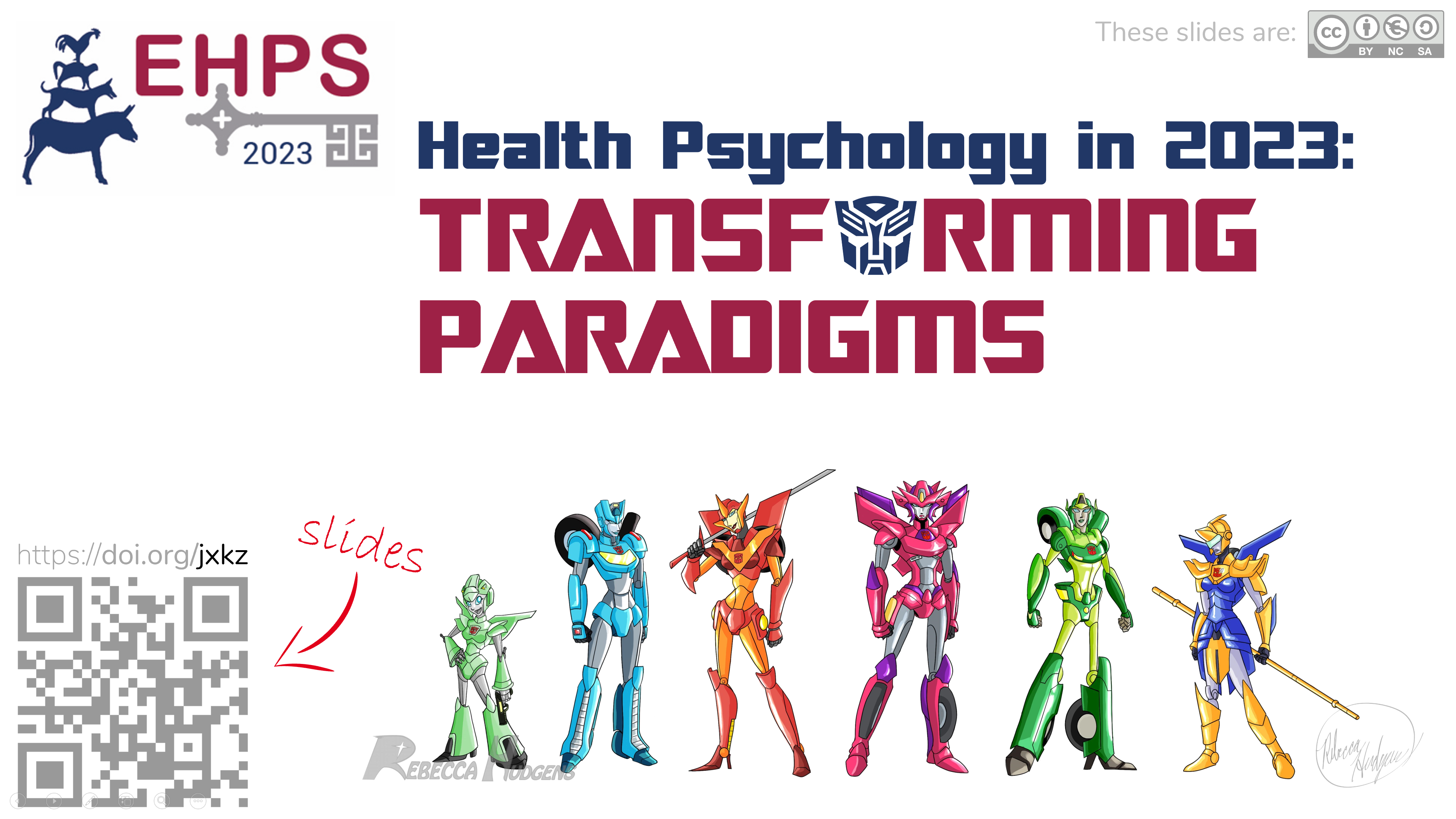This is a Mastodon thread. The original thread is available here:
This is a thread for #HealthPsychologists (or others interested in #Psychology) who will be attending EHPS 2023: the 37th Annual Conference of the European Health Psychology Society, which will take place in Bremen, Germany, from 4-8 September 2023 🗓️
Specifically, I’ll briefly describe an awesome symposium we put together 🤩

The symposium focuses on the paradigms transformations that are impending in #HealthPsychology (and perhaps in #Psychology in general) 💫
Since many of these theoretical and methodological transformations originated in the replication, theory, and measurment crisis, the symposium also covers quite a bit of #OpenScience ⚗️
You could almost say it’s a kind of mini @improvingpsych@fediscience.org at the EHPS 🙂
Oeh, speaking of which - we also created an OSF project for the symposium already, with its own ShortDOI: https://doi.org/jxkz. This is where we will post the slides and references to other materials (as well as at https://osf.io/meetings/EHPS2023.
This allowed us to include that ShortDOI URL in the abstract itself when we submitted the abstracts. Assuming this will be retained in the abstract book, that means everybody will always easily be able to find the slides 🔍

In the first presentation, “The Regression Trap: Why Regression Analyses Are Not Suitable For Pretty Much Anything in Psychology”, Rik Crutzen will explain, well, why regression analyses are not suitable for pretty much anything in psychology 🔥
He will explain this at the hand of a theoretical rationale based on the nature of psychological constructs as well as based on how regression coefficients are computed.
So, we’re off to a nice comforting start 😬

Next, in “Knowing What We’re Talking About: Facilitating Decentralized, Unequivocal Reference to Psychological Construct Definitions and Instructions”, I will discuss the mess (health) psychology is in regarding construct definitions.
Briefly: we barely really have them, we don’t use them, and when we comapre them, it turns out that we all have different elaborated definitions in our heads… 🤯
I also present a potential route to start solving this ✅

Third, in “Towards Improving the Precision of Health Psychology Theories: The Importance of Translating Narrative Theories into Dynamical Systems Models”, Olga Perski will discuss the benefits of formalizing narrative theories, with special emphasis on system approaches.
Where the first 2 talks highlighted problems of current approaches, this contribution shows a path forward - a very promising path at that, that seems more epistemologically defensible.
In other words: exciting! 🤩

Fourth, since moving forward will require both quantitative and qualitative approaches, Szilvia Zörgő will present “Qualitative/Unified Exploration of State Transitions (QUEST): taking time into account in qualitative research”.
This will present a way to study state transitions using qualitative data, which also enables exploring system thinking from a qualitative perspective!
For people not so much into math, this ia a great way to take dynamical systems seriously anyway 🎙️

Finally, Annick de Paepe will present “Encouraging causal thinking in applied health research with causal Directed Acyclic Graphs (DAGs)”, covering the question of how (health) psychologists can study causality.
DAGs are a great tool, both to become aware of your assumptions & to transparently communicate them to other researchers.
Also, they’re quite easy to use - though supporting your assumptions can be challenging. Which is an asset of the method, not a drawback 🤩
Together, these five talks touch on a number of issues that have been highlighted as causes of the replication crisis, and as such, they outline paradigm transformations that can take us further as a field.
We’re really looking forward to this session, and you come to the EHPS this year, we hope you see you there!
Oh, and - it’s at Friday the 8th of September at 9:30, room HS 1010 🙂

